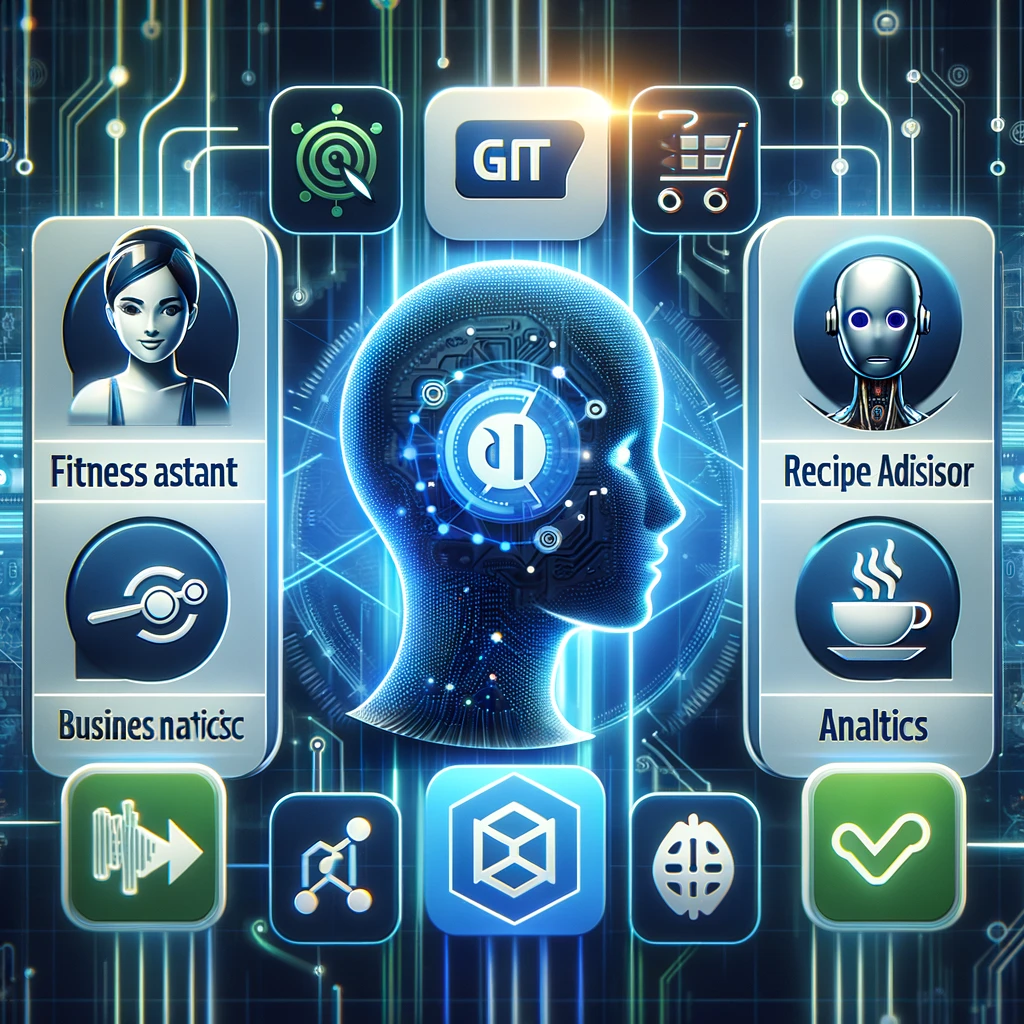The next frontier in app stores is upon us with the GPT Store Launch this week. This groundbreaking development is poised to redefine how we interact with AI, marking a significant shift in OpenAI’s approach to a more product-centric model
GPTs: Customized AI at Your Fingertips:
- Understanding GPTs: GPTs, are customized versions of ChatGPT designed for specific tasks. These AI models, available to paid users. GPT’s are customized versions of chat-GPT that are already pre-programmed with a prompt, or have been expanded with additional data or abilities to do things outside of your chat window. They can be created by anyone, and can be as simple or as complex as you wish. The best part of the GPT store launch, is that you do not need any coding experience to build your own GPT.
- Advanced Features: Beyond just saving your prompt engineered role, GPTs can have files attached, providing additional context for the tasks or be connected to other applications, databases and more, allowing GPT’s to effectively become assistants like JARVIS from the marvel movies, bringing you one step closer to your Iron Man dreams.
- Diverse Applications: GPTs can be customized to perform various roles, from acting as a marketing manager with the right prompt, to acting as a research assistant, automatically inputting information to a spreadsheet on your behalf, or reading detailed instructions from a dynamically updating database. The applications with the GPT store launch are endless!
Creating and Customizing Your Own GPT:
- Ease of Creation: The GPT Store enables anyone to build their version of the conversational AI system, regardless of coding experience. This democratizes AI application creation and makes it more accessible and versatile. When opening the GPT builder, you can actually chat with it much like you would with regular chat-gpt, telling it what you want the GPT to achieve. Chat-GPT will then generate a prompt for your gpt filling out it’s instruction parameter so it can do the specific role you have assigned it better. This just scratches the surface however. Along with the customizable prompt you can further expand it’s capabilities by adding files, and letting it know about functions it can access.
- Customization Process: Developers can simply describe their desired GPT’s capabilities, and OpenAI’s GPT Builder will attempt to create a chatbot to perform those functions. This process not only democratizes generative AI app creation but also makes it more accessible to a wider audience
Monetization and Market Impact:
- Monetization Opportunities: The GPT Store launch offers monetization opportunities for creators. During their Devday they announced that the most used GPT’s would get a monetized payout. However, considering that some of the most useful GPT’s will need to connect to external services, I assume, many GPT’s will charge subscriptions to allow access to the external services.
- Strategic Market Positioning: OpenAI’s initiative positions itself to dominate the AI application market, showcasing its models and controlling a key distribution platform. This move enables OpenAI to diversify its income sources and solidify its position in the burgeoning AI tools and applications market
Implications for Developers and Consumers:
- Opportunities for Developers: The GPT Store launch presents unique opportunities for developers to showcase their AI-driven applications, fostering innovation and collaboration. It offers a platform to display their AI-driven applications to a broader audience
- Consumer Accessibility: For consumers, the GPT Store launch promises a more streamlined and accessible way to interact with AI technologies. It simplifies the process of discovering and utilizing AI tools, potentially leading to increased adoption of AI in daily life
- Ethical Considerations: The transition raises critical ethical considerations, particularly regarding data privacy and AI misuse. OpenAI will need to address these concerns proactively to build trust with its user base
Real-World Applications:
The opportunities for GPT’s are huge! Here are some possible GPT’s ideas you might find in the GPT store launch
- PDF Summarizer -: GPT to summarize lengthy documents and texts
- FItness GPT’s -: Gpt’s that interact with various fitness apps & Api’s to better customize your health and fitness routine
- Chef/Food Assistant – Similar to the fitness GPT, you could have a GPT look at your food log, take into account your dietary restrictions and give menu feedback based on a databse of foodstuffs. Such as connecting to myfitnesspal
- D&D assistant – Feed a GPT a copy of your D&D books, and forget having to ruffle thru pages to find references you need. Furthermore expand it with functions to help keep track of various player details making it the ultimate assistant to your D&D experience
- Various art related GPT’s – Taking advantage of Dall-E GPT’s that focus on a particular art style or meme could be created such as the Simpsonizer. A popular GPT that turns people into simpson characters
These are just a few of the possible GPT ideas that could find their way to the store. The possibilities are endless!
Conclusion:
The launch of the GPT Store signifies a larger trend in the technology industry, where AI is becoming increasingly integral to product development and business strategies. OpenAI’s pivot to a product-centric model with the GPT Store could redefine the AI applications market, offering growth opportunities while bringing challenges and ethical responsibilities

